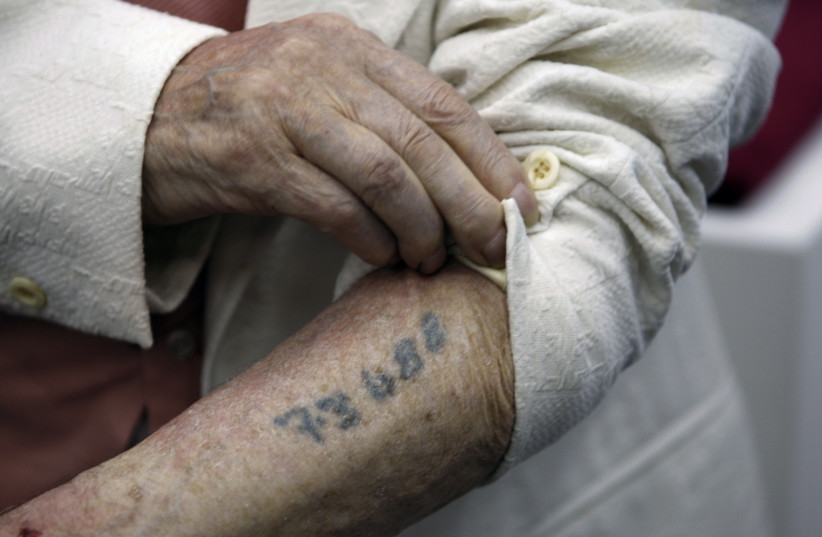Avrom, my friend of over 40 years, called me on Motzaei Shabbat last week to tell me his mother had suffered a heart attack and had been taken to the hospital. Sadly, I woke up Sunday morning to a message on my phone that she had passed away during the night.
So, off I went on Sunday morning, back to der Heim, to Manchester, England, to comfort my friend and share in his sorrow, just as I had shared many joyful moments with him over the years. Avrom’s mum had lived a full and largely contented life – happily married, a devoted wife, and a dedicated mother to four sons.
It was sad but not a tragedy, unlike the numerous funerals and shiva houses we have attended in the last nine months, of young men and women snuffed out in the prime of their life – never to fulfill their tremendous potential, dreams never achieved, goals never reached.
As we sat and talked, we reminisced about that unique and special generation of British Jews to which both Avrom’s and my own parents belonged. A world that exists now only in the fading memories of our youth. Born in the five to 10 years before the onset of World War II, their childhoods were not easy.
They did not suffer the horrors of their cousins in Europe, whose lives were either ended or blighted by the Holocaust, but they lived with the threat of invasion and defeat for many years. Many were evacuated from the major industrial cities to the relative safety of the British countryside, where they were billeted with strangers – some of whom were kind, others not so.

Their teenage years were spent in the austerity of post-war Britain, with rationing and the lack of many basic goods a way of life for them. This was a generation that was not particularly well-educated; most left school at 16 and went to work. Those who attended university were rare, admired, and often envied. There was no free meal ticket; they worked for everything they had – and worked hard too. They married in the ’50s, and we, the baby-boomer generation, came along.
Our parents were determined that we should have everything we needed, if not everything we wanted. While they themselves were not highly educated, they scrimped and saved so that we could be. We were taught decent, honest, and moral values – by example. We knew right from wrong because we saw it in action in our homes.
Some families in this sadly disappearing world that we 60-somethings were brought up in remained religiously observant, with our earliest memories being of our mothers lighting Shabbat candles and walking hand in hand to the synagogue with our fathers.
Some were less so, but nearly all of us imbibed strong Jewish ethics and a love for Israel that pervaded almost everything we did. Benevolent societies, WIZO coffee mornings, JNF tree planting, raising money for Israel, and campaigning for Soviet Jewry – this was our staple diet.
We baby boomers are a privileged generation, groomed for success by the sacrifices of our parents. Truly, we progressed by standing on the shoulders of giants.
As Avrom and I contemplated our good fortune to be born at the right time, in the right place, to the right parents, it became apparent that we took too much for granted and didn’t always appreciate the hard work, sacrifices, and all-encompassing love our parents displayed toward us.
And now it’s too late, as they are gone.
Were we able to give back to our parents when we had the chance?
I wonder whether, when they were older, we were as patient with them as they were with us when we were younger?
If we had to physically look after them when they couldn’t do it for themselves, did we display the kindness and love that they displayed to us when we were babies and couldn’t look after ourselves?
Did we make time for them like they made time for us?
Did we ever sacrifice our own opportunities so that they could be happy, in the way they did for us?
I doubt that the answer to all the above is yes.
It’s sad to lose a parent, even one who has lived a full and satisfying life, but the shiva process, which ensures that all extraneous matters are put to one side, is an incredibly therapeutic tool that allows for the celebration of a loved one’s life and a true appreciation of what our parents did for us in so many ways.
As I think about my own parents, sadly no longer on this earth, I close my eyes and yearn for just one more opportunity to tell them how much I appreciate what they did for me, their determination that I should do better than them, be more educated than them.
How much I ache to thank them for teaching me, by example, what it means to be a true Jew. What I would give to let them know that I am what I am because they were who they were.
And to those of you, my dear readers, who are lucky enough to still have your parents, don’t close your eyes – open them wide and look deep into your parents’ eyes, hug them, and thank them and the Almighty for your very good fortune. Do it before it’s too late, and all you have left to offer is kaddish.
The writer is a rabbi and physician who lives in Ramat Poleg, Netanya, and is a co-founder of Techelet-Inspiring Judaism.
